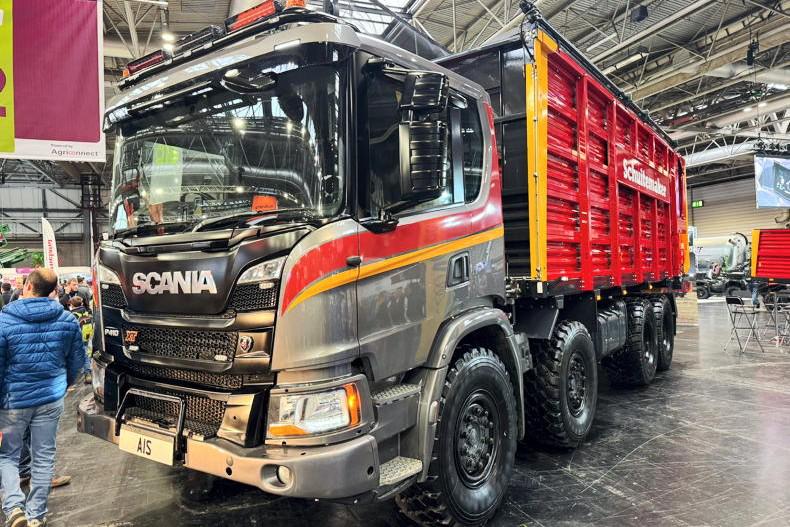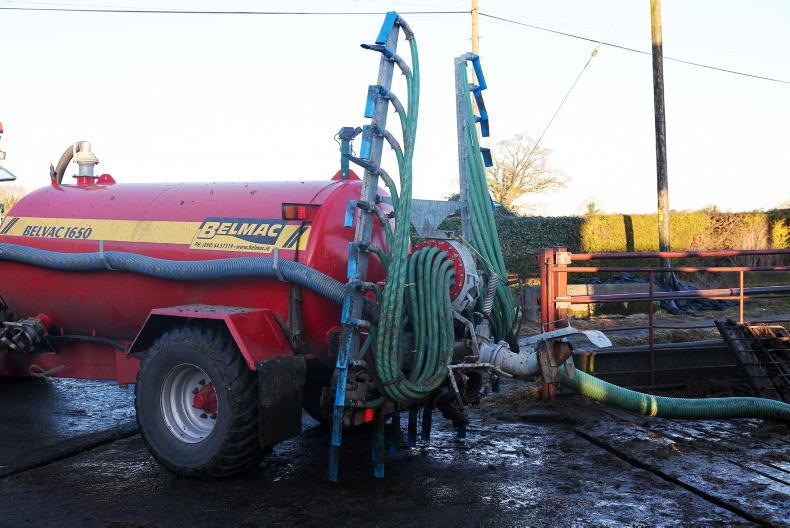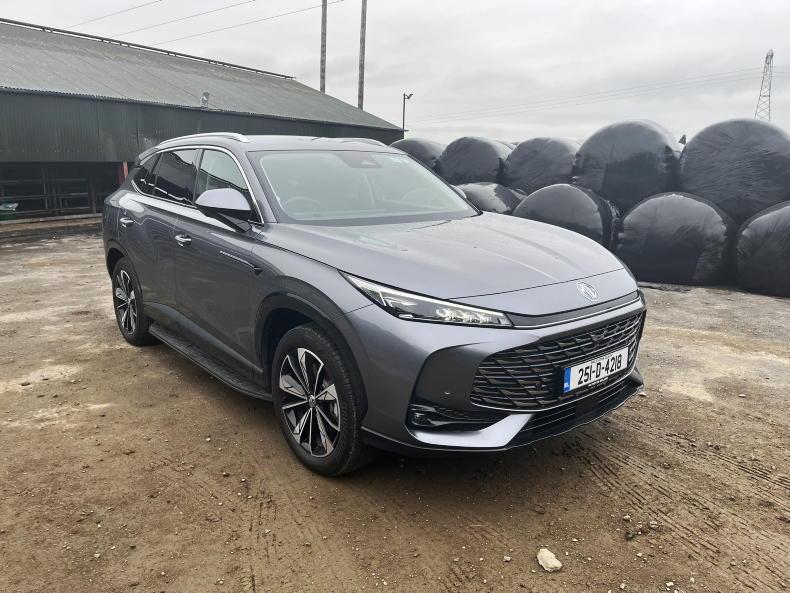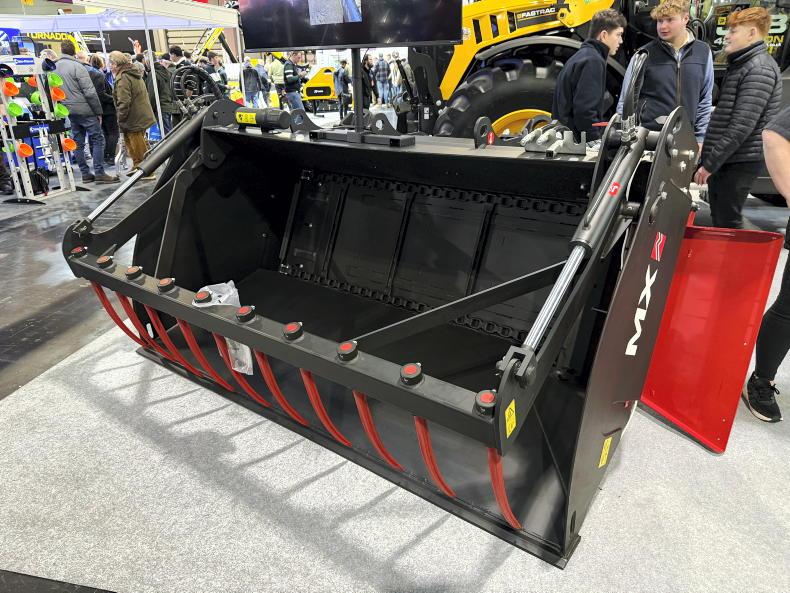The outgoing chief executive of the Farm and Forestry Contractors (FCI) in Ireland, Michael Moroney, has questioned whether grants to farmers for equipment and machinery are the best way to utilise farm funding.
“The last thing we need is more grants for more equipment in Ireland – there is already far too much metal on farms,” he told a meeting organised by the Institute of Agricultural Engineers in Cookstown last Wednesday.
Moroney said that machinery depreciation costs are up significantly on Irish dairy farms, driven in part by 60% grants under the Targeted Agriculture Modernisation Scheme (TAMS).
Similar grants are available in NI (up to 40% under Tier 1) and when you also include tax allowances for equipment, he accepts that farmers “would be mad not to buy it.”
However, he argues that contractors are best placed to use modern machinery efficiently, and that will bring various benefits, including driving down the overall carbon footprint of the industry.
Profit
However, contractors also need to make money and too often “there is a willingness to be busy, but not always a willingness to be profitable,” suggested Moroney.
To help contractors work out daily break-even rates for their services, FCI have created a cost index tool based on key financial figures typically available from your accountant.
But as a minimum, he suggested that no machine should be leaving the yard for less than €50/hr. That figure is based on a typical tractor using 15 to 20 litres of diesel per hour. There is then the cost of changing a tractor (often around €15 to €20 for each hour of work), along with labour, maintenance, insurance, etc.
“You can easily get up to €1,796 a week – which, if the tractor does 40 hours, is €45/hr just for the tractor. It is important you can understand your costs to manage your business,” said Moroney.
Future of fuel
With ambitious targets to switch to electric cars across Ireland by the early 2030s, it would be understandable if farmers and contractors were concerned about spending huge amounts on tractors or self-propelled machinery that are reliant on red diesel.
However, Moroney points out that it would not make any sense to scrap these machines, and he believes that “drop-in” biofuels will become widely available for use in diesel engines.
In construction equipment, especially diggers, a battery alternative might work as the machine can regenerate energy when operational, while there could be a role for small electric tractors in the likes of horticulture.
The other option for tractors is methane, but it would require significant infrastructure on the farm (an anaerobic digester). “I’m not convinced it is the solution,” said Moroney, adding that a number of big oil companies have invested in biofuel “because they believe it is going to work”.
Robots
Other developments in machinery are likely to focus on robotic technology. A lot of the technology is not new, but roll-out is being held up in legal wrangles around how to safely move the equipment on public roads, suggested Moroney.
Given concerns about soil compaction as equipment gets bigger and bigger, he said the future might be to use a number of mini robots to get a job done, rather than one large machine.
Read more
FCI appoints new managing director
Young people in contracting: keeping the flag flying in a period of uncertainty
The outgoing chief executive of the Farm and Forestry Contractors (FCI) in Ireland, Michael Moroney, has questioned whether grants to farmers for equipment and machinery are the best way to utilise farm funding.
“The last thing we need is more grants for more equipment in Ireland – there is already far too much metal on farms,” he told a meeting organised by the Institute of Agricultural Engineers in Cookstown last Wednesday.
Moroney said that machinery depreciation costs are up significantly on Irish dairy farms, driven in part by 60% grants under the Targeted Agriculture Modernisation Scheme (TAMS).
Similar grants are available in NI (up to 40% under Tier 1) and when you also include tax allowances for equipment, he accepts that farmers “would be mad not to buy it.”
However, he argues that contractors are best placed to use modern machinery efficiently, and that will bring various benefits, including driving down the overall carbon footprint of the industry.
Profit
However, contractors also need to make money and too often “there is a willingness to be busy, but not always a willingness to be profitable,” suggested Moroney.
To help contractors work out daily break-even rates for their services, FCI have created a cost index tool based on key financial figures typically available from your accountant.
But as a minimum, he suggested that no machine should be leaving the yard for less than €50/hr. That figure is based on a typical tractor using 15 to 20 litres of diesel per hour. There is then the cost of changing a tractor (often around €15 to €20 for each hour of work), along with labour, maintenance, insurance, etc.
“You can easily get up to €1,796 a week – which, if the tractor does 40 hours, is €45/hr just for the tractor. It is important you can understand your costs to manage your business,” said Moroney.
Future of fuel
With ambitious targets to switch to electric cars across Ireland by the early 2030s, it would be understandable if farmers and contractors were concerned about spending huge amounts on tractors or self-propelled machinery that are reliant on red diesel.
However, Moroney points out that it would not make any sense to scrap these machines, and he believes that “drop-in” biofuels will become widely available for use in diesel engines.
In construction equipment, especially diggers, a battery alternative might work as the machine can regenerate energy when operational, while there could be a role for small electric tractors in the likes of horticulture.
The other option for tractors is methane, but it would require significant infrastructure on the farm (an anaerobic digester). “I’m not convinced it is the solution,” said Moroney, adding that a number of big oil companies have invested in biofuel “because they believe it is going to work”.
Robots
Other developments in machinery are likely to focus on robotic technology. A lot of the technology is not new, but roll-out is being held up in legal wrangles around how to safely move the equipment on public roads, suggested Moroney.
Given concerns about soil compaction as equipment gets bigger and bigger, he said the future might be to use a number of mini robots to get a job done, rather than one large machine.
Read more
FCI appoints new managing director
Young people in contracting: keeping the flag flying in a period of uncertainty










SHARING OPTIONS